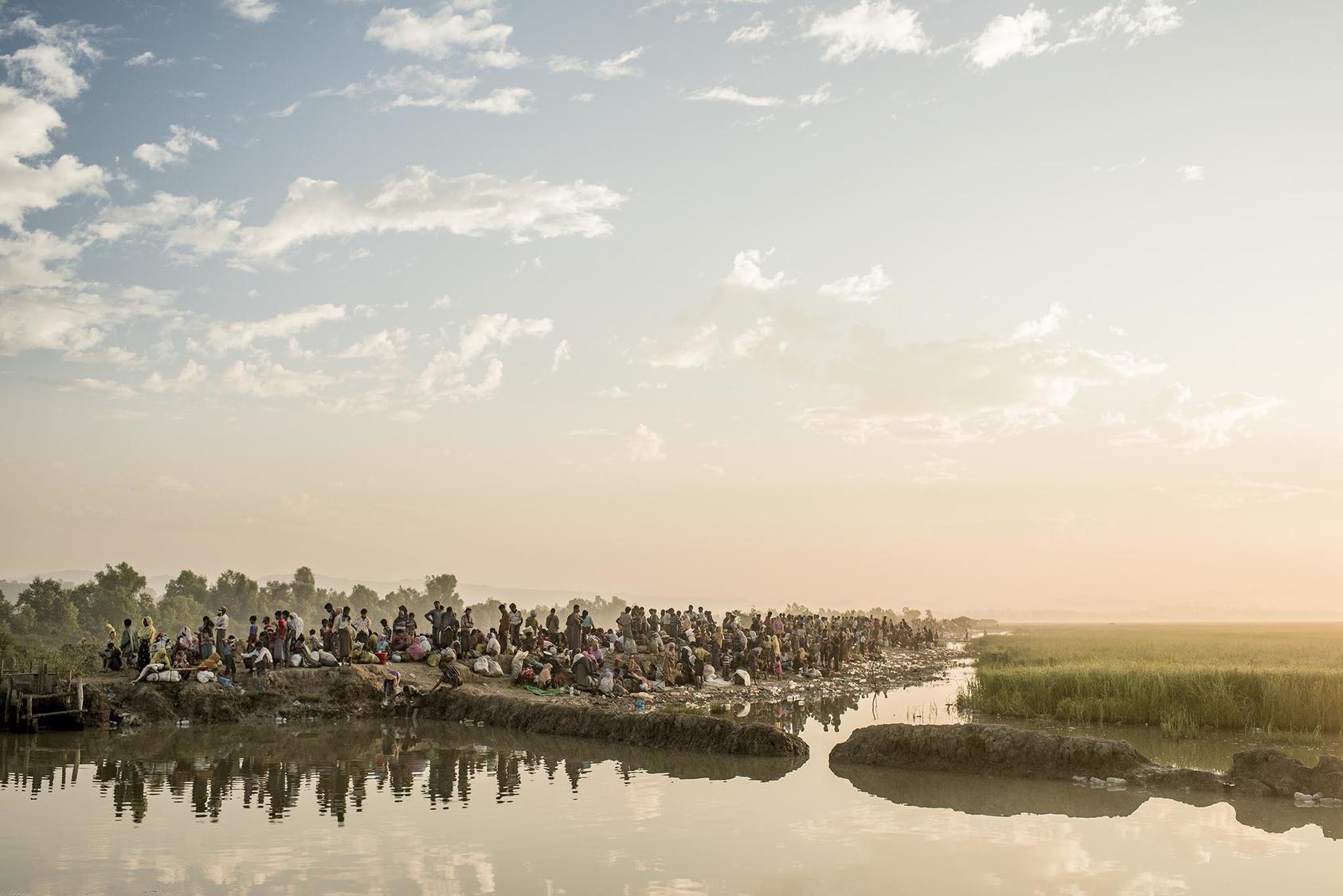Burma’s Balancing Act on Rakhine
Although Beijing has buffered Burma from international pressure for its handling of the crisis in Rakhine, Naypyidaw is beginning to look to the West for support.
In a reversal of past policy, Burma’s government last week signed a memorandum of understanding (MOU) with the United Nations to facilitate the repatriation of Rohingya refugees back to Burma. This unexpected move builds on the momentum established last month, when Burma hosted a United Nations Security Council (UNSC) delegation and invited the UN to assist in the repatriation of the Rohingya and the rehabilitation of Rakhine state.

Over the last nine months, the government in Naypyidaw has become increasingly isolated from the West and refused calls for unfettered international access to the areas of Rakhine state where clearance operations by the military in 2017 drove some 700,000 refugees to Bangladesh. While Western countries condemned the civilian government and State Counsellor Daw Aung San Suu Kyi, Beijing took steps to boost its status as one of Burma’s closest political allies.
The MOU and the visit by the UNSC delegation mark a shift in Burma’s willingness to engage with the international community and suggest Naypyidaw may be trying to strike a balance between the protection and support it receives from Beijing and its desire to avoid dependence on China.
Beijing’s Support for Burma
Beijing has provided Burma’s government with a buffer against criticism in the UN, and supported Naypyidaw’s assertions that the situation in Rakhine is an internal matter, that Burma faces a terrorist threat, and that international interference would be inappropriate. China has also worked to keep outside influence—particularly from Western states—to a minimum. In the lead up to the signing of the MOU with the United Nations High Commissioner on Human Rights (UNHCR) and the United Nations Development Programme (UNDP), Chinese officials reportedly lobbied Burma’s government not to sign the agreement.
High-level engagement between the two countries has intensified in the past year, including regular visits to China by Daw Aung San Suu Kyi, Senior General Min Aung Hlaing, and other high-level advisors. In November, Chinese Foreign Minister Wang Yi visited Burma and Bangladesh, where he proposed a three-point peace plan and offered to mediate between the two countries to help manage the refugee crisis. When Burma’s new president, U Win Myint, took office in late March, the first high-ranking foreign official to visit him was from China. And former President U Thein Sein visited Minister Wang in Beijing in April to celebrate the two countries’ long-standing friendship and promote economic cooperation.
There are several reasons for China’s strong support of the civilian government in Naypyidaw, including its economic interests in Rakhine, where it is building a Special Economic Zone and new oil and gas pipelines centered around a proposed deep-sea port at Kyaukphyu. China also sees economic benefit from increased investment in the rest of the country, as well as possible military use of the proposed Kyaukphyu port, and may be seeking to leverage its political support for Naypyidaw in return for favorable treatment for major investment projects.
Beijing also wants to curry favor with the civilian government, increase its own international reputation as a peacebuilder, and prevent the United States and others from exercising influence in Burma that might work against China’s interests. Further, Beijing may worry that international criticism of Burma’s policies in Rakhine state might lead to broader condemnation of China’s approach to its own Muslim minority population.
A Window of Opportunity
China’s political and economic engagement has been an important shield against Western criticism, but it is possible that Burma now sees the pendulum has swung too far in the other direction. Naypyidaw is likely wary of again becoming too dependent on China and may perceive that efforts to recover and move forward will be most successful if done with broader international support.
Last month’s visit by the UNSC delegation may be a first step toward repairing Burma’s relationship with the international community. This recent MOU allows UNHCR and UNDP access to Rakhine state, and establishes a framework for cooperation aimed at creating the conditions conducive to the voluntary, safe, dignified and sustainable repatriation of Rohingya refugees to their places of origin or of their choosing—though it is unlikely at this point that many will choose to return.
The president’s office also recently announced that it will establish a three-person independent commission to investigate human rights violations against the Rohingya community. One of the commission members will be from another country, and both national and international experts will support the team’s work.
Striking a Balance
The international community now has a window of opportunity to work with the Burmese government to address the Rohingya crisis. In late April, UN Secretary General Antonio Guterres appointed Christine Schraner Burgener as a new special envoy to Burma to examine the increasing violence in Rakhine state and the north. On her trip to Burma later this month, Burgener’s top task is to earn the trust of Daw Aung San Suu Kyi and the civilian government without sacrificing humanitarian and human rights principles. At the same time, the government in Burma will have to return Burgener’s good faith spirit of partnership.
China has a significant role to play, particularly with respect to promoting economic development in Rakhine state and offering financial and humanitarian assistance to refugees living in Bangladesh. But the crisis will not be resolved unless Burma’s civilian government, military, and populace address the key underlying issues that prevent the Rohingya refugees from returning home. Economic development and humanitarian assistance are important, but they do not solve core issues like security, citizenship, access to justice and livelihood, and freedom of movement, which are all essential to restoring the dignity of the Rohingya and ensuring all populations in Rakhine state—and the rest of Burma—are safe, secure, and able to continue on the country’s historic reform path.



